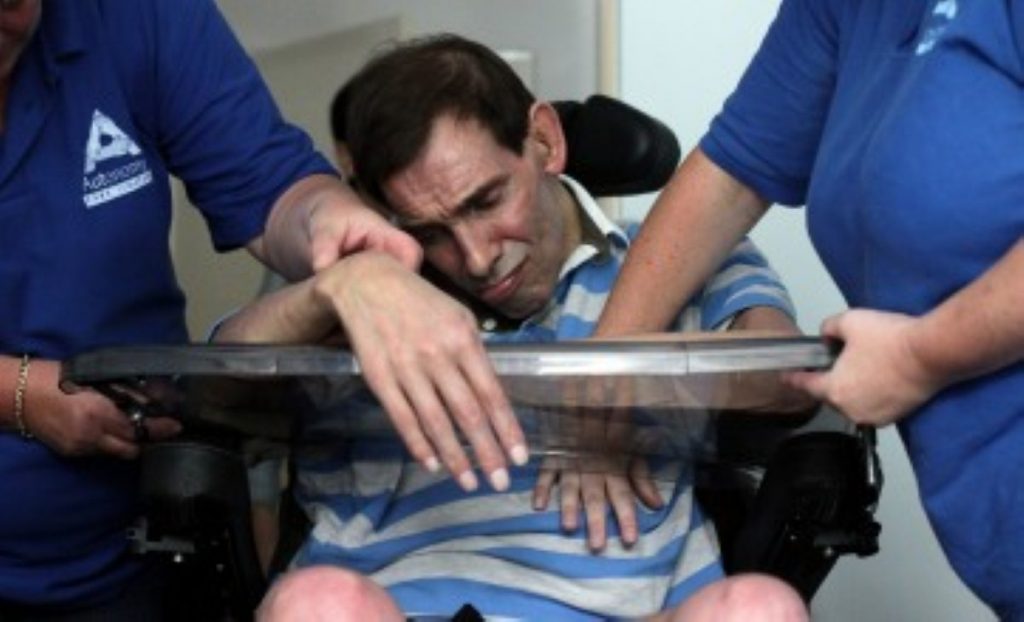Right-to-die campaigners are wasting their time
Supreme court judges are appealing to parliament to revisit the right-to-die issue. But campaigners seeking a change in the law will find little help from MPs.
The issue has come to the fore because of two men. Tony Nicklinson, who suffered from 'locked-in syndrome', gave up on life and died naturally after losing his high court battle on the issue last year. Paul Lamb, who says he is in a permanent state of pain after a car accident left him paralysed last year, is carrying on Nicklinson's legal challenge in the courts.
Today the final judgement in their case has arrived. It's not clear whether the rules about assisted suicide, which threaten a maximum 14-year sentence for the doctors involved, would actually be enforced via a prosecution. But that wasn't the point of the current judgement. The panel of the highest legal minds in the land has determined that the rights to privacy and a family life guaranteed in the European Convention on Human Rights are not being infringed by the ban against euthanasia.
It's true that the views of our lawmakers are just as important, if not more so, than those who uphold those laws. In Westminster, though, the prevailing feeling is one of deep disquiet about any move towards liberalising the law.


MPs take an unusual approach to this sort of debate. It's the kind of attitude which voters would like them to take to most things, but are let down because of the fog of partisanship infighting which ruins so much public debate. On fundamentally moral issues like euthanasia or abortion, MPs are given the chance to vote with their hearts. The whips are not ushering them into one voting lobby or the other. So the ethics of the dilemma are thought about carefully and deeply. It hasn't been put to a vote in this current parliament, but there's a clear sense of the direction of their thinking.
If right-to-die were put to a free vote in the Commons before the next general election, it would very probably be defeated.
Supporters of a change seem to be outnumbered by a group of backbenchers, of all parties, who are deeply conservative about the issue. They're the ones who think the sanctity of life trumps everything else. One champion of the status quo told me the 'vast majority' of MPs would vote against right-to-die because of this.
That seems an exaggeration, because the largest grouping among MPs is that of the undecideds. These are the parliamentarians who would want to go through the proposals carefully and try and work out whether they would actually be workable in practice. Veterans of the last debate think most of these would be won over by a more subtle argument against right-to-die: the fear of coercion.
This could take any number of forms. There's the semi-murderous intent of a relative ushering granny off to Switzerland in order to gather in their inheritance. Then there's the more intangible worry that doctors, facing financial pressures, might be tempted to encourage wavering euthanasia candidates that they'd be better off dead. Someone who's prepared to go into the night quietly is a lot cheaper to look after than someone clinging on indefinitely.
The three main parties don't want to talk about right-to-die, which makes it very hard for the issue to be raised anyway. There was a recent backbench debate on the issue, and Lord Joffe has tried and failed three times to push his bill on euthanasia through the Lords. But with private members' bills becoming harder and harder to get through the Commons, there are few avenues left for individual MPs to push the issue.
Today's judgement from the supreme court may change that. The suspicion in Westminster, though, is that nothing much will change. Campaigners disappointed by the end of a drawn-out legal struggle should not look to parliament for comfort. MPs are too troubled by the potential consequences of coercion to offer them any solace.












